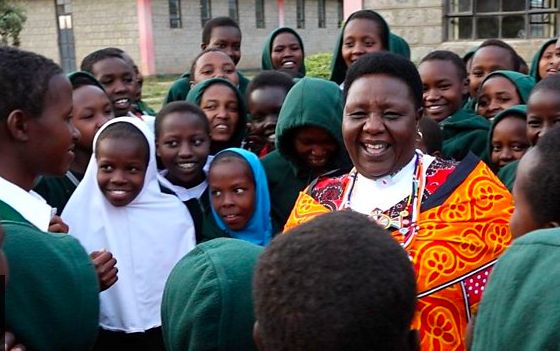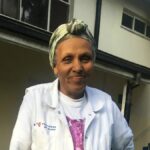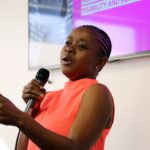Agnes Pareiyo is a women’s rights activist in Kenya’s Maasai community and a politician.
As the Director of the Tasaru Ntomonok Initiative, a community-based organisation who journeys from community to community, she carries her wooden model of the female genitalia to educate people on the harmful effects of female genital mutilation also known as FGM on women and girls.
FGM is praticed by many communities in Africa, including the Maasai community in Kenya. Though, for the past five years, progress has been made across the world, gradually ridding the continent of the life-altering non-medical procedure that is FGM.
It is a coming-of-age ritual that involves the cutting of a woman’s genitalia, marrying her off to start a new life as a wife and a mother. Girls are forced to undergo this at very young ages and they therefore miss out on receiving an education.
Pareiyo did not have the chance to escape the practice when it came to her turn to be initiated into her new life but she was very much against the idea.
‘I grew up in a Maasai community. I kept promising this friend of mine that I will not be cut. But when I went home unfortunately when I was 14 years old, they were celebrating because they were preparing for my ritual to be cut. I agreed to go through the cut unwillingly. I promised myself in the community that I will not support it.’
Standing by her conviction, she grew up to be an advocate against the practice in a way that people fully understood enough to inform others.
‘I was talking to people who have not gone to school.’ So she used visual learning instead to teach and communicate. ‘You know when you talk to somebody he forgets but when he sees anything he can hardly forget.’
She then visited a school, spoke with the children and found that girls needed empowerment. The girls wanted to stay in school.
‘After educating this community and reaching the girls, they started running away to us. We saw that there was a need to empower these girls by giving them education so they can sustain their decision,’ so that they remain uncut.
‘I am proud to say I have so many girls who have gone to school and have come back to their communities.’
‘These girls that we rescue will go to the community with those messages of making sure that they are protecting girls.’
As a result of Pareiyo’s hard work with the community-based organisation, parents in the communities have also began to advocate against the FGM practice and refuse to have their daughters go through the process.
For Agnes Pareiyo, she continues to spread her message in support of girls: support girls, girls need education, and girls should not be seen as a source of income.














